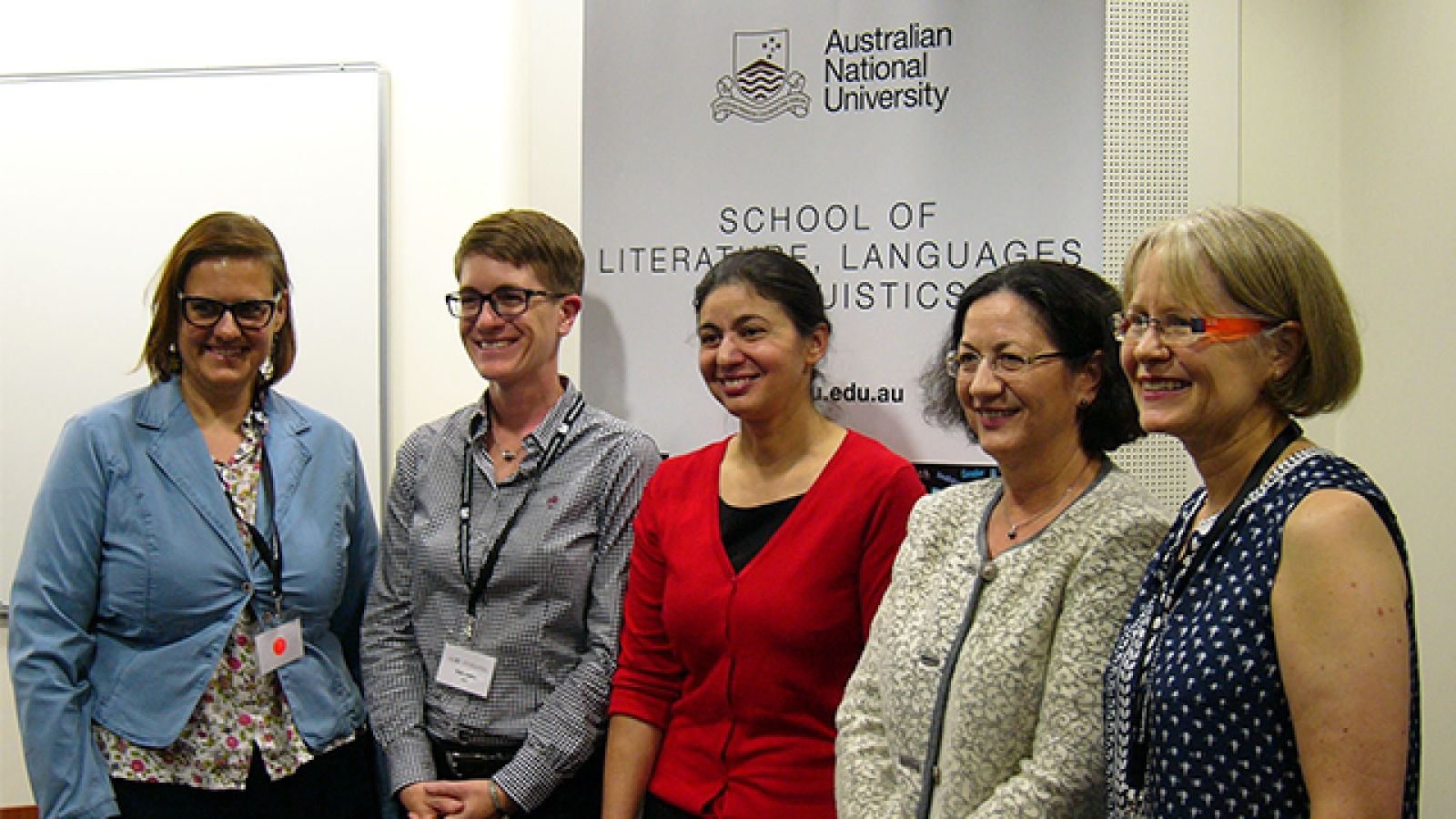German Studies conference examines culture and global identity

Left to right: Dr Heather Benbow (University of Melbourne), Dr Katie Sutton (ANU), Ms Hatice Akyuen, Ms Gerda Winkler (Counsellor and Deputy Head of Mission), Dr Gabriele Schmidt (ANU).
A conference exploring Germany and its place in the world at a time of rapid change is being hosted this week by the Australian National University.
Around 90 leading international researchers from 19 countries will present on topics ranging from migration and integration, Holocaust memorialisation, to techno music and linguistics.
Co-organiser Dr Katie Sutton says the German Studies Association of Australia International Conference is happening amid rapid and exciting changes in Germany and Europe.
“It’s a time when questions of borders and border crossings are constantly in the news in national politics,” Dr Sutton, Lecturer in German and Gender Studies in the School of Literature, Languages and Linguistics, says.
“It’s also influencing the way we think about language teaching, about cultural studies, and literary themes.”
Dr Gabriele Schmidt, ANU German Studies Program Convener and conference co-organiser, described one keynote speaker who epitomises the theme of the conference, German journalist and author Hatice Akyün.
“She is in some ways a person who has more than one identity; some parts of her are Turkish and some German,” Dr Schmidt explains.
“She represents many people in the global world with a hybrid identity.”
Hatice will be reading from her works and talking about the buecherbus.
“She is someone who comes from a background where there were no books at home,” Dr Schmidt says.
“When she discovered in her local street this ‘library in a bus’, that changed her world. It introduced her to books, to literature, and to new ideas.”
The organisers also highlighted other keynote speakers; Professor Mahmut Karakus from İstanbul Üniversitesi, and Professor Karen Leeder from the University of Oxford.
“Professor Karakus will be talking about new tendencies in post-migration literature in Germany,” Dr Sutton says.
“His work focuses on Turkish-German cultural and literary studies, which is a very significant aspect of contemporary German studies.”
Professor Leeder’s talk, meanwhile, will address how themes of time and ageing have been negotiated in 20th century German literature and poetry.
Dr Schmidt, whose research is partly focused on why people learn languages, will present a paper on the integration of language and culture in the teaching of German. Dr Sutton will present on inter-war German films that showcased new scientific theories about human sexuality and the human unconscious, and which popularised those theories for a broad audience.
“We hope that the conference will show to our international visitors the diversity and strengths of the discipline in Australia and ANU,” Dr Schmidt says.
Cosmopolitan Imaginings in the German-Speaking World (Kosmopolitische Gedankenwelten im deutschsprachigen Raum) is supported by the German, Austrian and Swiss Embassies in Canberra and the German Academic Exchange Service (DAAD). It runs from 30 November to 2 December 2016. Further information: /gsaa2016